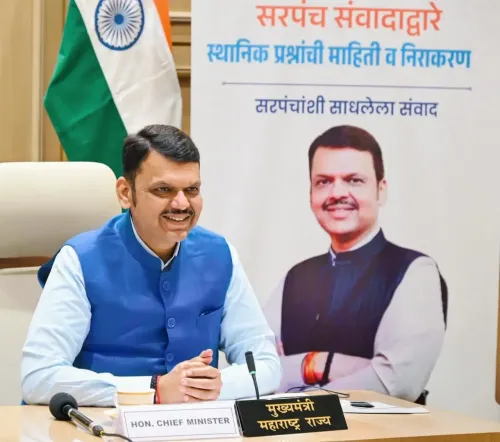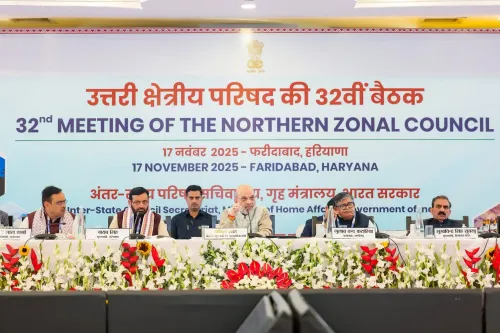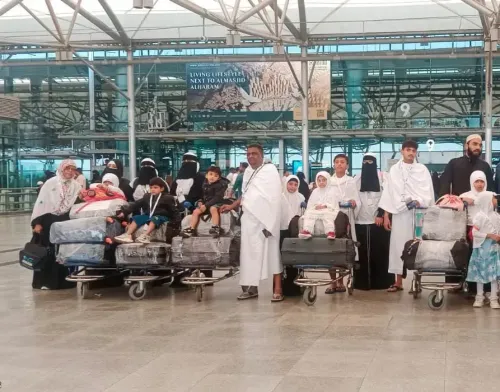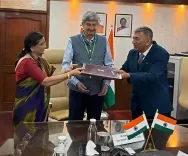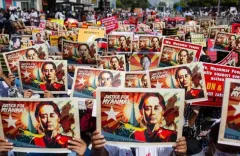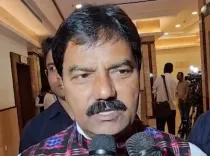Is India Prepared to Stand Against Pakistan's Terrorism?
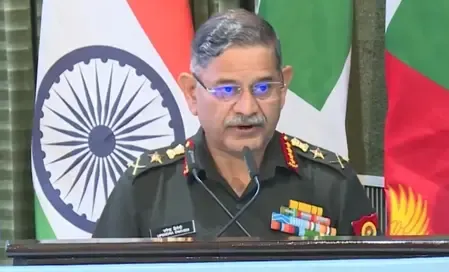
Synopsis
Key Takeaways
- India's stance against terrorism is unwavering.
- Peace talks cannot coexist with acts of terror.
- Operation Sindoor is just the beginning of planned military actions.
- Significant decline in terrorism in J&K.
- Army Goodwill Schools are transforming lives in the Valley.
New Delhi, Nov 17 (NationPress) The Indian Army Chief, General Upendra Dwivedi, reaffirmed on Monday that India will not tolerate terrorism while engaging in dialogue, emphasizing that "blood and water cannot flow together" and that conversations cannot move forward in the presence of terror.
He issued a stern warning that if Pakistan were to undertake any hostile actions, India is fully equipped to teach them a lesson on how to act as a neighbor.
During the Chanakya Defence Dialogue 2025, which focused on Pakistan's state-sponsored terrorism and the recent car blast in Delhi, General Dwivedi stated, "When that country sponsors terrorism, it poses a concern for us. While we aim for progress, any hindrance will prompt us to take action. In the context of the New Normal, we assert that blood and water cannot coexist, nor can talks and terror."
He highlighted that if Pakistan chooses the path of peace, we welcome it. Until then, India will undoubtedly respond to the terrorists and their backers. "Those attempting to blackmail India should be aware that we are at a point where such tactics hold no fear for us," he expressed.
Referring to Operation Sindoor, he described it as merely a "trailer", adding, "The full picture is yet to unfold. The trailer concluded in 88 hours. We are fully prepared for what lies ahead. If Pakistan engages in misbehavior, we are ready to enforce lessons on neighborly conduct."
He stressed the importance of rapid decision-making, stating, "Operation Sindoor taught us that the time for decisions is very limited; thus, decisive actions must be taken at all levels. Coordination is crucial—whether it's the Army, Air Force, Navy, or CAPF. The Army cannot operate in isolation; a unified front is essential for a strong response. Today's warfare is multi-domain, hence synergy is vital."
On the potential duration of future conflicts, he remarked, "We cannot predict how long it may last. We must be ready for prolonged engagements, even if it extends to four years."
Reinforcing India's formidable position, the Army Chief added, "Currently, our deterrence capabilities are robust... Since 2019, following a significant constitutional change, there has been a major shift in the situation in J&K."
Reflecting on his tenure in J&K, he recounted, "A woman approached me during my command and mentioned that on Independence Day, schools would ask children to draw the national flag, but they would question their parents about which country's flag they should depict; this was the reality. Now, we see political clarity and a substantial drop in terrorism."
He noted that terrorism has seen a significant decline, with 31 terrorists neutralized this year, of which 61% were from Pakistan. Only one individual was freshly recruited, and he was apprehended... "There are no more incidents of stone-pelting, no sloganeering; everything has come to a halt," he stated.
The Army Chief also pointed out the surge in tourism in Jammu and Kashmir, noting, "Every metric has transformed in recent years."
He indicated that those who had previously abandoned the region due to security concerns are now eager to return and contribute.
General Dwivedi praised the significant impact of Army Goodwill Schools in the Valley, highlighting that many children aspire to enroll in these institutions, which are currently managed by doctors, engineers, and six of our own commissioned Army officers.


